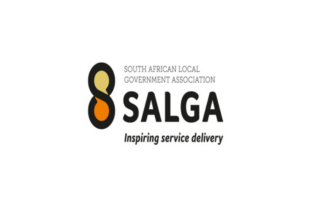TOWARDS its support for African air transport, the International Air Transport Association (IATA) has reiterated its commitment to Africa’s aviation and called on industry and government leaders in Central and West African countries to work together to make aviation more integral part of African economic development and integration.
The international body also promised to address the issue of safety, regional cooperation and global standards for infrastructure funding in African aviation industries.
The Director-General, Tony Tyler, said in Dakar, Senegal recently that, “African aviation supports 6.7 million high quality jobs and business activity totaling some $67.8 billion. Aviation could play an even bigger role in facilitating Africa’s growth and development.
To achieve this however, we need a team effort of government and industry focused on improving safety, adopting a coordinated policy approach and implementing global standards.
“The most pressing problem for African aviation today is safety. In 2011, the continent experienced an average of one accident for every 305,000 flights using Western-built jet aircraft. This was an improvement over 2010, when the average was one accident for every 135,000 flights. But it was still nine times worse than the global average. “It should be as safe to travel by air in Africa as it is in any other part of the world.”
It would be recalled that in May 2012, IATA, with the International Civil Aviation Organisation (ICAO) and a host of other organizations had committed to an Africa Strategic Improvement Action Plan aimed at addressing safety deficiencies and strengthening regulatory oversight in the region by 2015. The Plan was endorsed as part of the ‘Abuja Declaration’ by the Ministerial meeting on Aviation Safety and Security of the African Union in July.
According to IATA boss, “runway accidents accounted for about a quarter of the accidents over the period. If we target measures to address them, we will see results that will make a difference. This has already proven to be the case with FDA.
“Since making FDA available to all IATA members in April 2008, deviations from optimum flight trajectories were halved for those airlines in the program. FDA improves safety. And the spirit of the Plan is to work with governments across the region to make more broadly available across Africa tools, programs and standards that will improve safety”.
Tyler, who called for a coordinated regional approach to aviation, stated that, “Africa faces many common challenges. In addition to safety, these include inadequate infrastructure, ‘brain drain’ and skills building, finding sources for capital, fleet modernisation, building competitiveness and much more.”
However, he noted that for many of Africa’s governments, aviation is not the top priority. “Eliminating poverty, improving health, raising living standards, and generating jobs rank much higher. My message is not to shift priorities, but to ask governments to see aviation as an economic driver and develop policies to support that important role. “Aviation connectivity is about people doing business, products moving to markets and new opportunities being discovered. With a few kilometers of runway even the most remote location can be connected to the global village. This has a huge and positive impact on development. And that is the best reason for governments across Africa to care about aviation and work together to ensure its safe, efficient and sustainable progress,” he added. Source: http://www.ngrguardiannews.com






